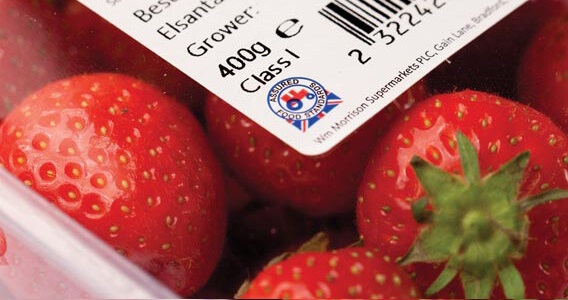
Consumers could have a direct line to food producers through the use of ‘smart labelling’ which would increase trust, according to new research.
The Smart Tags project is working with consumers, farmers and retailers to develop smart labelling similar to QR codes.
These active and intelligent labels will allow shoppers to get rapid and better information about food and drinks they consume.
Smart tags will enable consumers of these innovative supply chains to exchange and collect information at pre-purchase and post-purchase levels on different aspects of food and drink products.
This could include whether the product in the package is spoiled, its freshness, temperature in the package, appropriateness for personal diet, sustainability, origin, potential allergens, recipes, and storage instructions.
The labelling system being developed could enable farmers and retailers to cut down on the amount of waste produced in packaging.
The project could also include detailed information on the origin of ingredients and shelf life.
Dr Giuseppe Nocella, of the University of Reading, said consumers wanted to know more about the food they were eating not only before buying products, but also after having purchased them.
"They want to be assured in a friendly way not only about the quality, safety and sustainability of the food and drinks that they consume but also how to recycle and dispose these products," he added.
“These new systems of communication, providing a much easier way for consumers to rapidly and directly check the quality and safety of their products, can be seen as a key factor to enhance trust from farm to fork making food supply chains more transparent.”
The Smart Tag project is coordinated by the VTT Technical Research Centre of Finland and a consortium of European universities, including the University of Reading.
